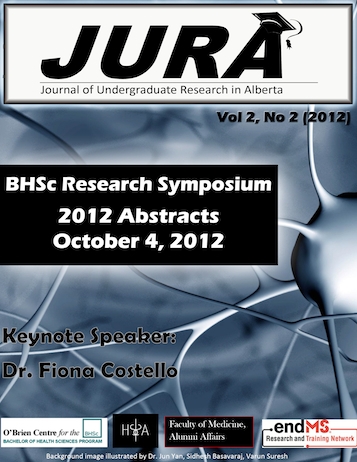The change in adolescent patients’ attitude towards psychotropic medications due to patient education
Keywords:
attitude, psychotropic medications, patient education, adolescent patientsAbstract
The objective of the study was to examine if patient education through a medication group can positively influence the attitude of the adolescent patients towards psychotropic medications. The study was conducted in an inpatient psychiatric clinic called Young Adult Program (YAP) at Foothills Medical Centre, Calgary, Alberta, Canada. All the patients were 13-18 years old and on prescribed psychotropic medications. Hogan Drug Attitude Inventory was used to measure the attitude of adolescent patients. A higher score in the questionnaire indicates more positive attitude and higher chance of compliance. 23 patients filled out the questionnaire prior to the 6-week long medication group and 18 patients filled out the questionnaire after the medication group. On average, adolescent patients’ attitude towards psychotropic medications became more negative (-9.2%) after attending the medication group. Adverse effects during the period of workshop (6 weeks), time constrain in the post-treatment workshop, ambivalence in answering questions, more awareness etc. could have made adolescent patients’ attitude more negative. The patients were taught about various kinds of psychotropic medications, their side-effects, compliance and safety. Studies have suggested that the rate of compliance with psychotropic medications decreases from 50% in the first year to 15% in the second year (1). Since the rate of compliance with psychotropic medications decreases over time it can be inferred that the attitude of patients towards psychotropic medication becomes more negative gradually. However, due to the lack of comparative literature it is not clear if patient education through the medication group was able to impede the progression of negative attitude in adolescent patients. Patient education was not certainly able to reverse the trend and make the attitude positive on average. Health care providers might have to come up with more innovating ways to positively influence adolescent patients’ attitude towards psychotropic medications.
References
Downloads
Additional Files
Published
Issue
Section
License
Authors retain all rights to their research work. Articles may be submitted to and accepted in other journals subsequent to publishing in JURA. Our only condition is that articles cannot be used in another undergraduate journal. Authors must be aware, however, that professional journals may refuse articles submitted or accepted elsewhere—JURA included.


